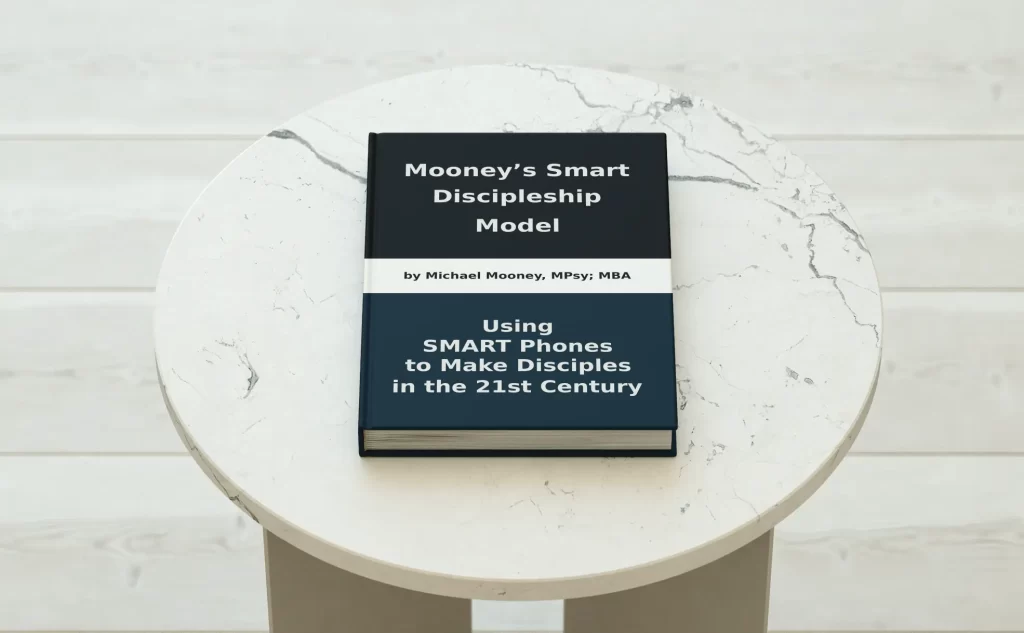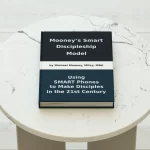Alignment of Faith and Methodology #
Determining the best style of leadership to use in each situation is no easy task. It seems erroneous to think that only one theoretical approach fits every need. Therefore, when considering a strategic leadership approach it follows that there are at least two necessary factors to consider 1) the purpose for which a leadership approach will be applied; and 2) the context in which it will be initiated. The purpose of this study is to develop an online course aimed at training ministers to apply transformational leadership to a worship focused model of discipleship, communicated using smartphone technology. It seems the most effective way to achieve the most ideal results is to offer the training in the same way they will offer it to disciples.
With respect for the diversity of possible leadership approaches; theory and preferences alone are not enough to justify the ministerial acceptance of such practices within the scope of Christian discipleship. It is not likely that ministers of the gospel will accept any approach which cannot be validated by the principles of leadership established by Christ and promulgated by his apostles.
This proposal selects the theory of transformational leadership because the ideology of this theory is regarded as biblically consistent with the leadership teachings of the New Testament. Further, it already embraced by contemporary Christian religious leaders as a strategic approach to church leadership and the development of parishioners. (Cooper, 2005; Sosik, Zhu & Blair, 2011; Gorlorwulu & Rahschulte, 2010).
Christian Discipleship #
Discipleship is an interesting term which has a variety of meanings within the minds of those who hear it. It could be descriptive of a teacher-student relationship surrounding any academic discipline or subject. Yet when discipleship is used within the context of Christian thought, the possibility of meanings is thereby narrowed. A general account may describe a spiritually based mentoring relationship which uses the life and work of Jesus Christ as a model for developing a closer relationship to God, continual spiritual growth and personal improvement.
The application of transformational leadership is proposed as a construction by which ministers may establish and carryout a process of discipleship in the 21st century. The focus of this spiritually based relationship is concerned with the development of deeper commitments to God by inspiring worship beyond the routine expectations set by regular church attendance.
Ironically, the word discipleship is not used in the Bible (Discipleship, 2002). However, variations of the word (such as disciple) are used. Probably the most noteworthy example is a statement made by Jesus which has been coined as “the great commission.”
Go therefore and make disciples of all nations, baptizing them in the name of the Father and of the Son and of the Holy Spirit, teaching them to observe all that I have commanded you. And behold, I am with you always, to the end of the age.” (Mat 28:19-20, ESV).
This must have been an amazing instruction to the Jewish disciples who viewed salvation primarily for the Jews (Romans 1:16), and who had a very limited concept of the world as a whole. Since these words were spoken, they continue as the priority of Christ’s disciples. Even unto this day, the church holds them as a mandate of God for the propagation and establishment of His Kingdom. In the Great Commission the concept of discipleship is outlined, and the use of the word disciple is consistent with the general secular definition. Nevertheless, the hereafter use of the word discipleship (including variations) is descriptive of a Christian perspective of the term.
Regarding the great commission, Kauffman (2004) is noted for saying, “It is not our responsibility ‘to make people ‘Christians’ and get them baptized into a particular denomination, but rather to help people decide to follow Jesus and his radical message. Maybe this is why the New Testament writers only use ‘Christian’ three times but ‘disciple’ on 269 occasions!” (Kauffman, 2004). It has not been verified weather or not this number of occurrences is accurate, but the message communicated by this quote is very consistent with transformational leadership objectives.
The MacMillan dictionary of the Bible states “Jesus explains that discipleship involves committing one’s whole life to God. Jesus is the model for discipleship, with the cross as its symbol (Mark 8:34-5) and his servanthood its pattern (Mark 10:42-5)” (Discipleship, 2002). In agreement with this Biblically supported statement, there are several factors which define and direct Christian discipleship. 1) Jesus is the source of the teachings which pertain to the Great Commission, “teaching them to observe all that I have commanded you.” (Mat 28:20). 2) His life serves as the model of leading disciples. 3) Discipleship is a purposeful act which involves “going.” 4) Jesus is present in the disciple making process, “I am with you always, to the end of the age.” (Mat 28:20).
Following this rationale, there are two important facts of Christ’s method of discipleship which seem to be overlooked by the institutionalization, and then segregation of the church into denominations. 1) Jesus modeled the behavior of “going” and finding people where they were –as opposed to expecting them to come to him. 2) Discipleship occurred in the realm of everyday life (i.e. the marketplace, public water fountains, rivers, and the fields where people tilled the ground. In other words, discipleship did not take place inside the walls of church buildings.
This point is significant to this report because the proposal is to develop ministers online (from where they are), to facilitate discipleship to people using smartphones (wherever they are). Meeting people on these terms is very consistent with the very roots of Church history. Jesus made a regular appeal to people to “follow him” (Mat. 10:36, 16:24, 19:21; Mar. 8:34, 10:21; Luk. 9:23, 18:22; Joh. 10:27, 12:26, 21:22). Yet in every occasion he called them from where they were, which is where he was! Additionally, responding to his call did not result in the realization of a particular location. In fact, on one occasion a man replied that he would follow. Jesus said to him, “Foxes have holes, and birds of the air have nests, but the Son of Man has nowhere to lay his head.” (Luk 9:58 ESV).
Ironically, those who answered his call found themselves being told to “go” as the path by which to follow (Mat. 5:24, 5:41, 8:4, 8:13, 9:6, 9:13, 10:5-7, 19:21, 28:19). In view of the advancements in mobile technologies, communication with “all the world” is more possible than ever before. The church must consider these possibilities in order to fully enjoy the advantages afforded by them. For these reasons, it is anticipated that ministers will receive the proposal of this research with gladness, and that it will invoke divine favor from God because of its consistency to Christ’s example.
Transformational Integration of Discipleship Model #
The transformation model will be integrated into discipleship by application of the four “I’s.” The following is an explanation:
- Ministers will experientially learn to utilize individualized consideration when communicating theological concepts with smartdisciples. In other words, ministers will develop the ability to relate Biblical teachings in a manner which speaks to the needs and individuality of smartdisciples.
- Ministers will experientially learn to develop fresh and creative ways to use inspirational motivation as a means by which to encourage deeper commitments to Christ.
- Ministers will experientially learn to develop idealized influence with disciples by highlighting personality and individuality to people of the Bible, smartdisciples, and themselves.
- Ministers will experientially learn to use intellectual stimulation to draw intrigue and inquiry to learning more about God.
The method for communicating this training will be to bring ministers though an experience very similar to the ones which will be encountered by the smartdisciples they will lead. This method will equip them with the experiences necessary to truly identify with the future smartdisciples which will be in their care. Further, it will acquaint them with the potential technical difficulties which may be experienced; thereby, helping them to anticipate and overcome obstacles to the process. Additionally, curriculum will be used to introduce ministers to the previously mentioned virtual aspects of leadership, best practices, and ethical considerations.
—> Click to Next: Methodology: Mooney’s Smart Discipleship Model <— #
6 of 8 #
Research Proposal for Master of Science in I/O Psychology:
National Association of Christian Ministers
Developed Under Supervision of Dr. L. Faibisch
9/19/2014









